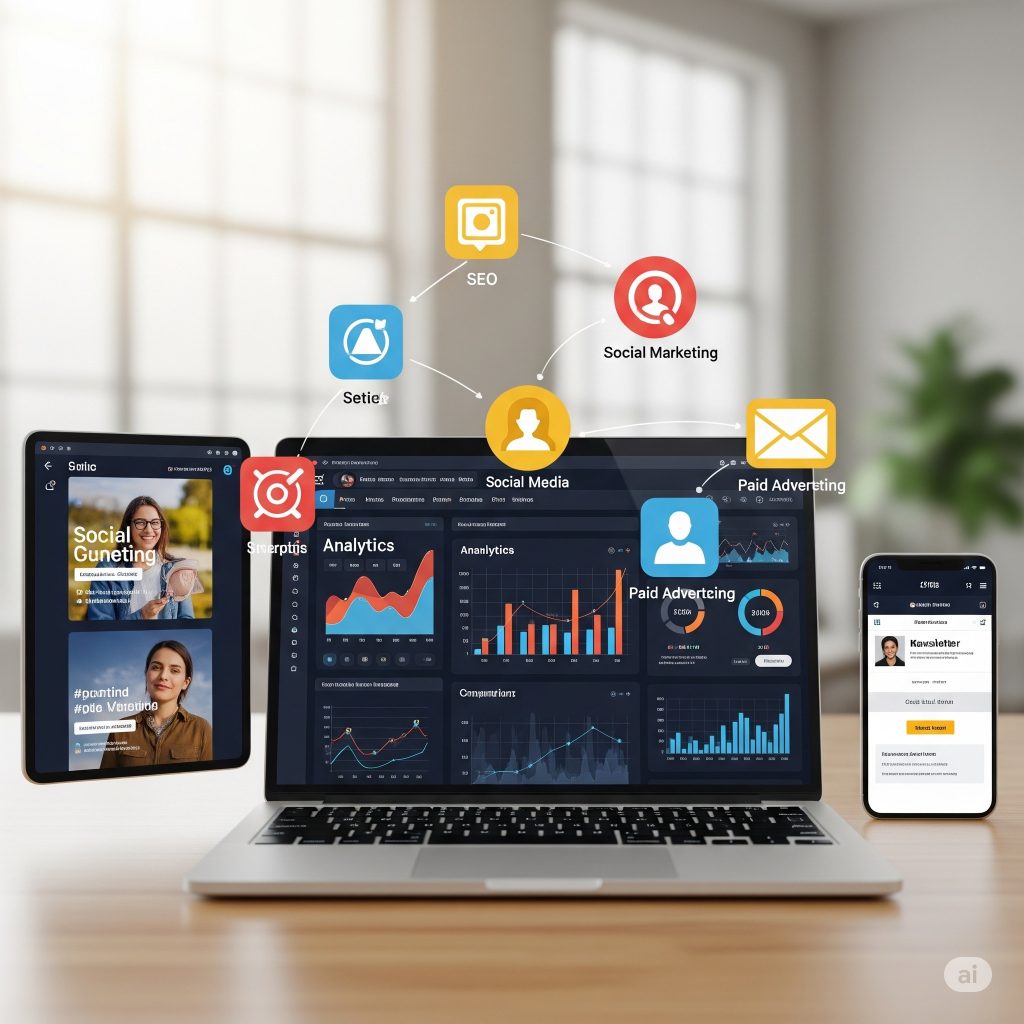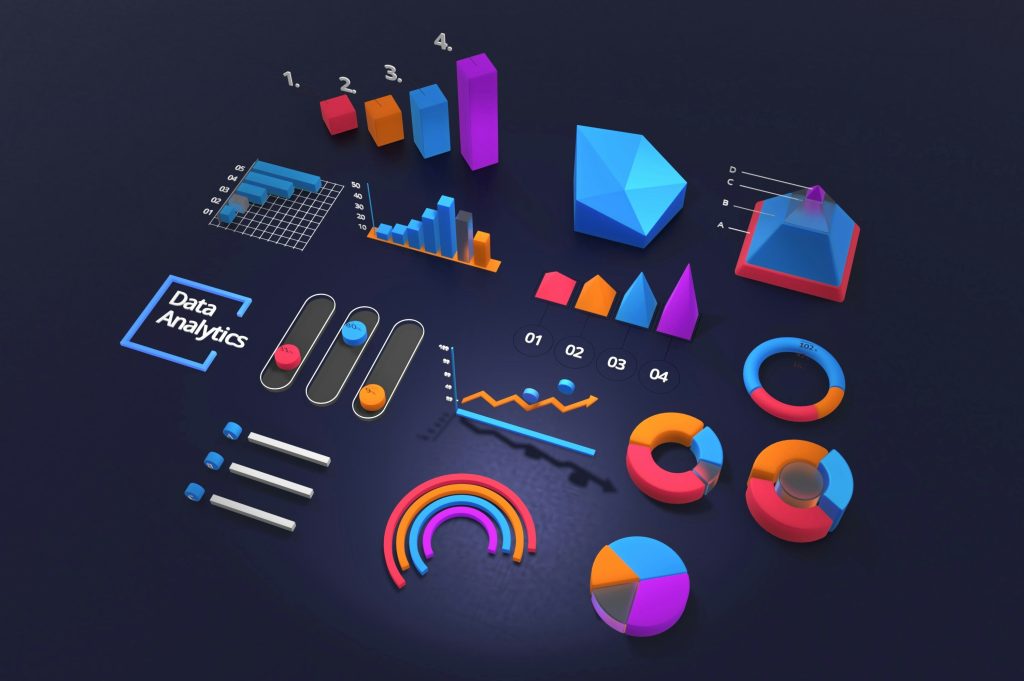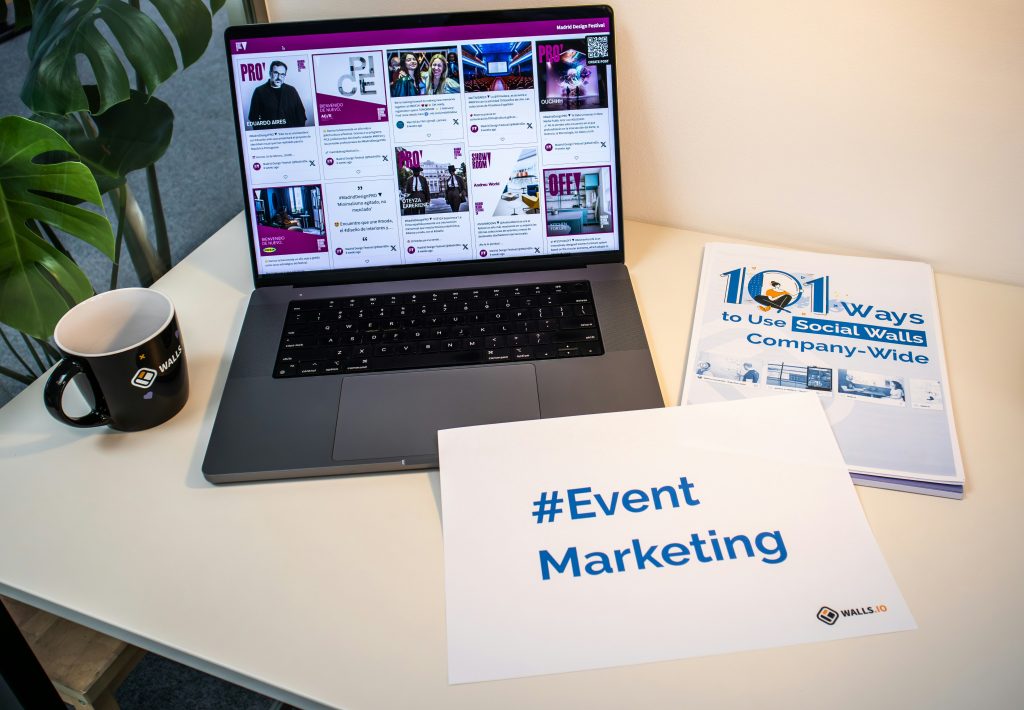In a previous blog, we explored the exciting world of digital marketing and discussed how pursuing an MBA from Robert Kennedy College (RKC) can be a pivotal step in unlocking your future in this dynamic field. From strategic thinking to data-driven decision-making, the programme offers a robust foundation for aspiring digital leaders.
This week, we are pleased to bring you a more personal perspective—insights directly from Gohar Hovsepyan, a current RKC student, who shares her journey, experiences, and reflections on navigating the MBA programme.
Without further ado, let’s dive in.

The Digital Marketing module has been a journey of significant professional and personal growth. As an Executive MBA student at Robert Kennedy College (RKC), this course offered a panoramic view of an ever-evolving landscape, forcing me to challenge preconceived notions and deepen my understanding of a field I thought I already knew. This reflective report delves into my learning process, evaluating key insights, articulating my strengths and weaknesses, and outlining a clear path for future performance.

The Digital Playing Field: A New Perspective
The initial units, particularly “Introduction to Digital Marketing” and “Strategic Thinking in the Digital Age,” provided a robust foundation. Before this module, my understanding of digital marketing was largely fragmented and tactical. I perceived it as a collection of disparate activities like social media posting or running ad campaigns, rather than an integrated strategic discipline. This course directly challenged that view, helping me see digital marketing as a cohesive, customer-centric strategy deeply interwoven with overall business objectives. My initial strength lay in my eagerness to learn and my ability to synthesize new information quickly. I found myself rapidly absorbing core concepts, from the critical evaluation of various digital tools to the strategic alignment of digital efforts with business goals. However, I identified a weakness early on: a tendency to seek immediate, clear-cut answers. This sometimes hindered my ability to embrace the nuanced and ambiguous nature of digital strategy, as I was prone to trying to fit complex scenarios into simplified frameworks.

My Learning Journey: Process and Motivation
My approach to studying this module was a blend of independent learning and collaborative engagement. The structured learning units provided by RKC were my primary resource. I found the combination of readings, case studies, and interactive forum discussions particularly effective. I supplemented these with my own research, using platforms like LinkedIn Learning and industry blogs to see how the theoretical frameworks applied in real-world scenarios. This hands-on, self-directed learning was crucial for building a deeper, more practical understanding.

The group and individual assignments were pivotal in this process. The group assignments were especially insightful, as they required us to deconstruct case studies and apply theoretical frameworks to understand diverse customer behaviors. While this was a collaborative effort, it also highlighted a personal challenge: my underestimation of the emotional drivers behind online consumer behavior. While I could logically follow customer journey maps, truly empathizing with the digital customer’s needs—as highlighted in Unit 4—required a conscious effort to move beyond purely rational analysis. Feedback from my peers was instrumental here; it often highlighted instances where my initial proposals, while technically sound, lacked a deeper understanding of the human element, pushing me to refine my approach.
Motivation throughout the course was a key factor in my success. As an Executive MBA student, balancing work, life, and studies can be demanding. My motivation stemmed from a clear understanding of the module’s relevance to my career. I kept my motivation high by regularly connecting the course material to my current professional challenges and future career goals. The discussions with fellow students, many of whom faced similar professional dilemmas, also created a strong sense of community and shared purpose that fueled my drive to learn and excel.

Key Insights and Self-Discovery
The latter half of the module was a turning point. Units on the Digital Marketing Mix and Customer Relationship Building dismantled my preconceived notion of the marketing mix as a static concept, demonstrating its dynamic adaptation in the digital age. I realized that a successful digital strategy often involves a symbiotic relationship between online and offline experiences, a nuance I had previously overlooked. My initial skepticism towards the long-term relationship-building aspect in the transactional digital environment was directly confronted by Unit 8, which highlighted the critical importance of nurturing online relationships for building brand loyalty and advocacy.
The final units on KPIs and Ethics were particularly transformative. While I understood the theoretical importance of measurement, translating marketing objectives into actionable, measurable KPIs proved challenging. My initial attempts often involved generic metrics rather than specific, strategic indicators, which highlighted a need to develop my analytical rigor.

Finally, the unit on ethical, social, and political aspects was a crucial turning point. My prior understanding of ethics was largely confined to avoiding obvious misrepresentation. This unit expanded my awareness to encompass the legal, moral, and cultural nuances of online activities. It challenged my inherent bias towards maximizing reach without fully considering the societal implications. This forced a deep interrogation of my own value sets, pushing me to consider not just “what works” but “what is right” in the digital sphere.
Future Learnings and Opportunities
The Digital Marketing module has equipped me with a robust theoretical framework and a critical lens to navigate the complexities of the digital landscape. Several key areas for development have been clearly identified:

● Deepening Analytical Rigor in KPI Development: My weakness in defining robust KPIs is a clear area for development. I plan to take online courses and workshops specifically on marketing analytics and data visualization to gain practical experience. I will seek opportunities to manage marketing projects where I am solely responsible for defining and tracking campaign performance, moving beyond theoretical understanding to practical mastery.
● Cultivating a More Empathetic Digital Approach: While I have made strides in understanding the emotional drivers of consumer behavior, consistently applying this empathy remains a priority. I will actively seek out resources on behavioral economics and user experience (UX) design, specifically focusing on how psychological principles influence online interactions. By intentionally incorporating user personas and empathy mapping into my digital strategy development, I will ensure the human element is central to every decision.
● Championing Ethical and Responsible Practices: The rapid pace of digital evolution demands continuous learning, particularly regarding its ethical implications. I will commit to regularly following industry publications and research on emerging technologies like AI in marketing and the metaverse. Engaging in discussions around data privacy and responsible AI will be a priority, ensuring I maintain a sophisticated awareness of the evolving digital landscape.
In conclusion, this module has been a transformative journey. It not only broadened my knowledge but also refined my self-awareness, providing a clear roadmap for confident, ethical, and continuously enhanced performance in the dynamic digital world.







